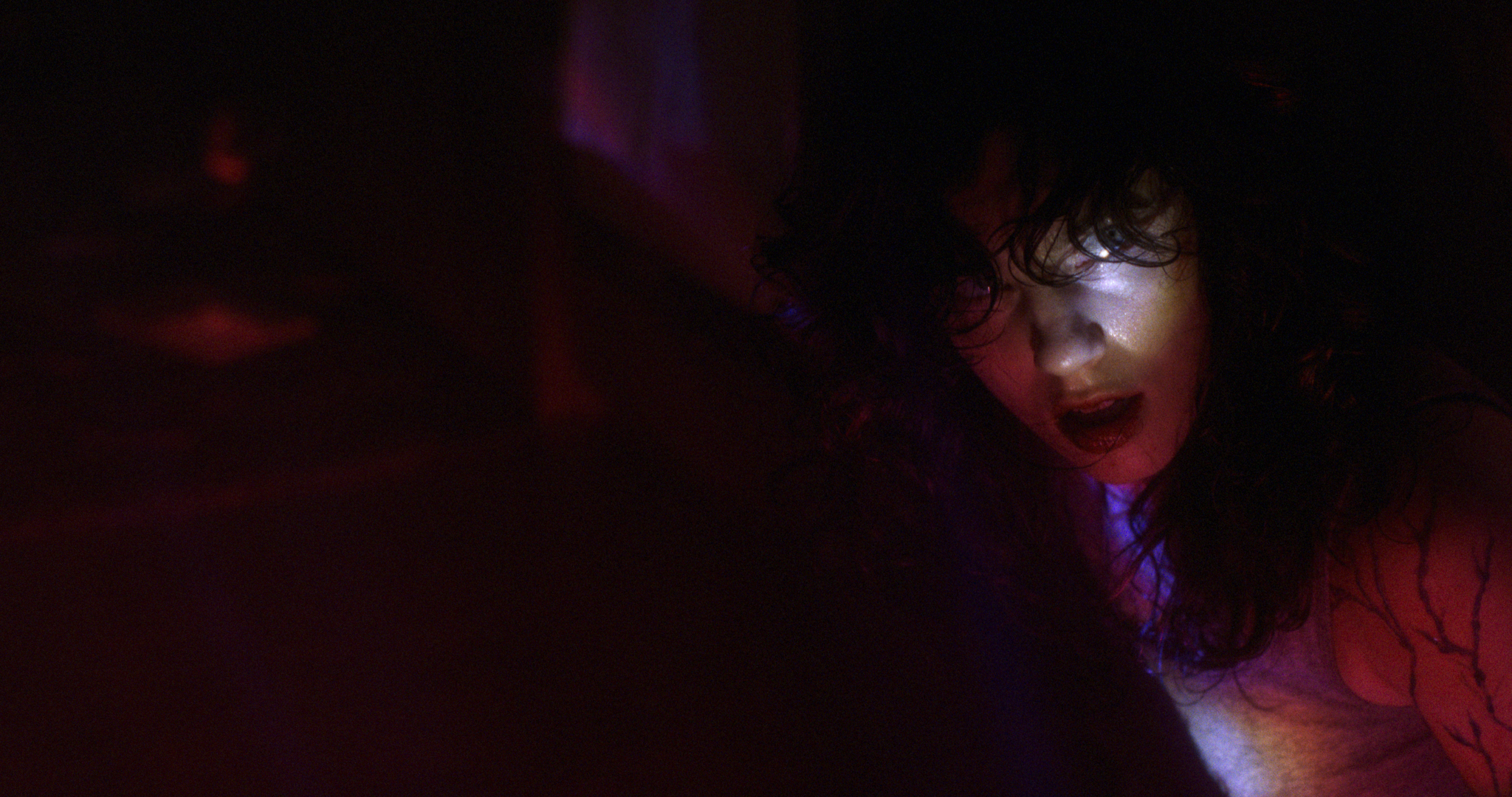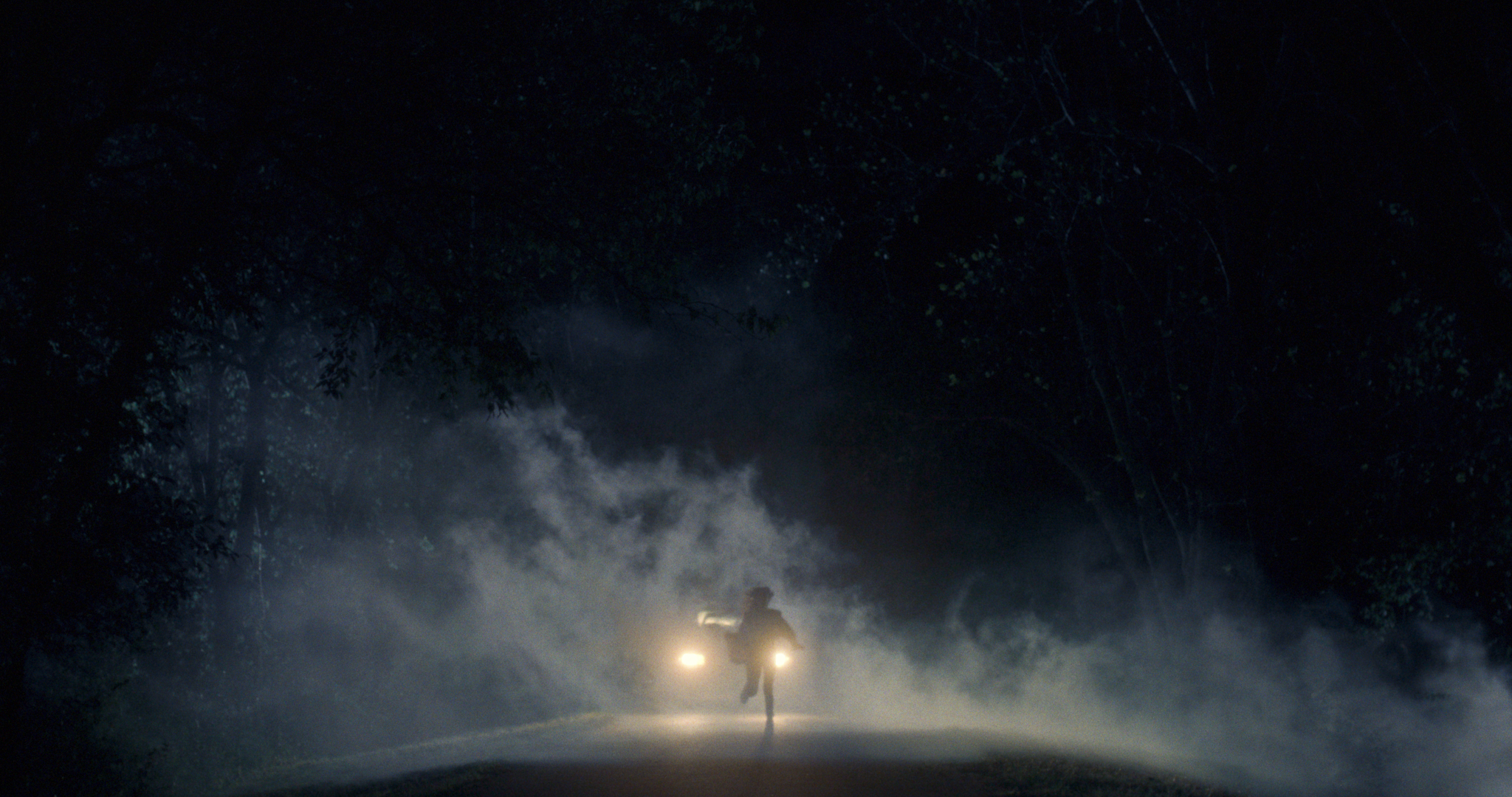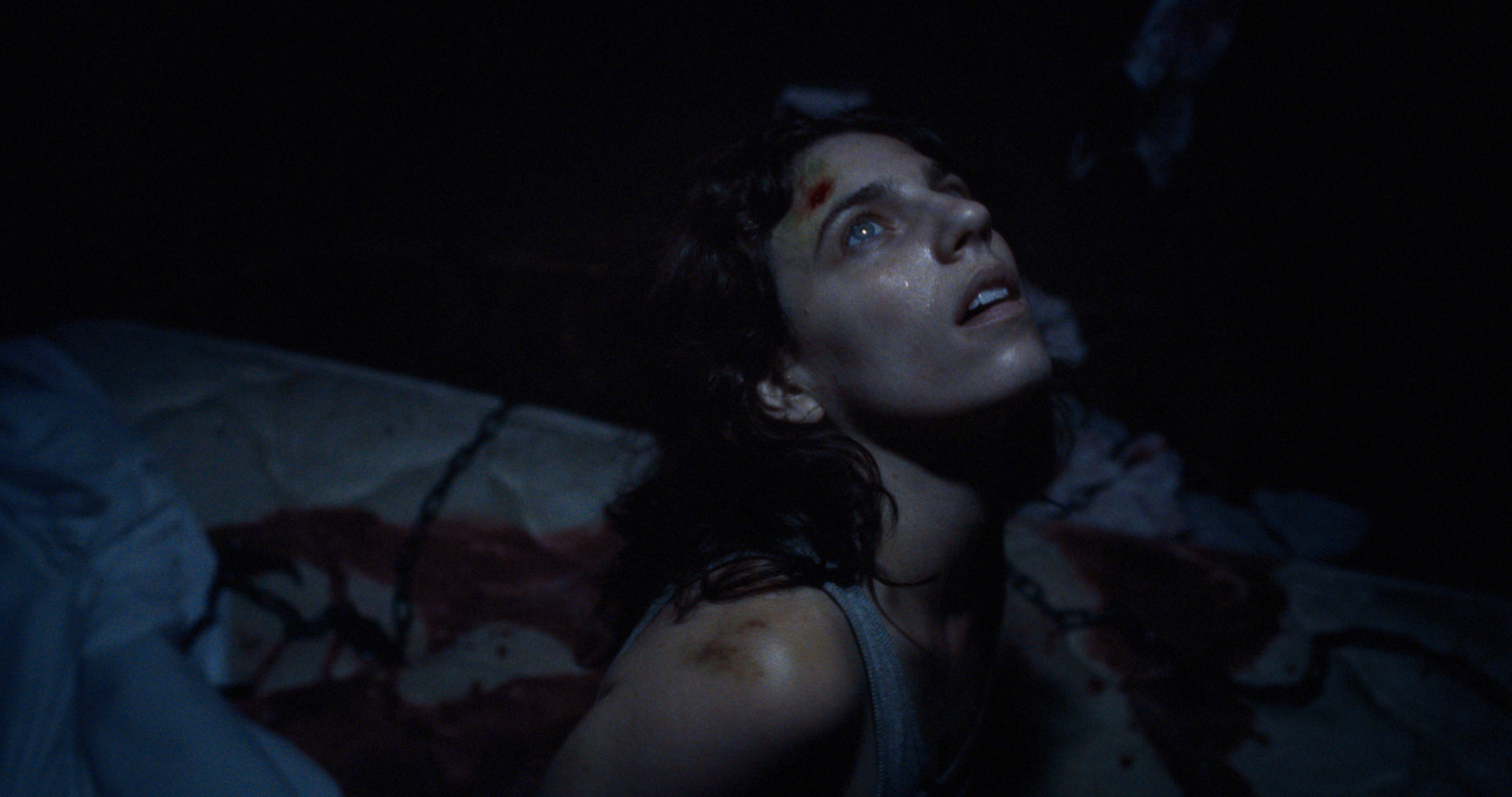
Where Horror Gets Studied, Skewered, and Celebrated.
Newest articles and reviews
Fantasia Fest 2025: HELLCAT Is a Gripping Descent into the Identities We Lose and the Monsters We Make
By: Professor Horror
Brock Bodell’s HELLCAT wastes no time. Within seconds, it hurls us into a world of screams, shadows, and the eerie scrape and rattle of a trailer, with sounds that seem to echo not only down a desolate desert road but through time, memory, and identity itself. Premiering at Fantasia Fest 2025, HELLCAT is both stripped down and tightly wound as we get a two-character thriller set almost entirely in a trailer whose cramped space and relentless movement evoke both claustrophobia and existential drift. It’s part mystery, part chamber piece, part metaphysical panic attack…and though its frame is narrow, its thematic range is surprisingly wide.
Dakota Gorman stars as a young woman who awakens blindfolded and disoriented in the back of a moving trailer, with no memory of how she got there and a mysterious bandage on her arm. The trailer rattles and groans with a life of its own as every inch is cluttered with little knickknacks, squeaking fixtures, and loose bolts, as though the walls themselves are trying to keep her in. Outside, there is darkness. Inside, noise. There’s no room for silence, and no room for thought. This is not just a horror setting, but it’s a sensory trap. Bodell’s choice to keep the trailer in constant motion (both physically and aurally) generates a unique kind of dread. It’s not just that she’s confined, but it’s that she’s being taken somewhere, and that destination is unknown.

Her only connection to the outside world is a small, prison-like slot in the wall and the disembodied voice of an older man, who calmly explains that he found her near death at a campsite and is rushing her to a doctor. According to him, she’s been infected by a mysterious bacteria, and every passing minute inches her closer to death. Whether this is true, delusion, or manipulation remains maddeningly unclear. The voice is calm, confident, even warm at times, but the film is careful to keep his face and motives out of reach. Todd Terry, relying heavily on just his voice, walks an unnerving line between paternal concern and calculated control, as he never allows the audience to settle into certainty. Opposite him, Gorman gives a performance of remarkable restraint, threading fear, curiosity, rage, and resignation into a tight coil. Their dynamic is both delicate and electric, and Bodell’s direction wisely avoids melodrama, and instead lets tensions simmer beneath every exchange. In the spirit of films like Glorious or Oxygen, HELLCAT builds its suspense entirely through confinement and conversation. But unlike other one-location thrillers, this trailer is not static. It is a non-place, constantly in motion, a moving coffin that also doubles as a memory palace. As the woman rummages through drawers and peers into corners, flashes of her past begin to return as she witnesses moments with friends, parents, and a life she can barely recognize as her own. These flickers are the only moments when the trailer grows still as time…for just a breath…stops rattling.

Bodell cleverly uses the trailer as a metaphor for identity itself as it is crammed, noisy, constantly redefined by the junk we’ve collected and the voices we choose to hear. The protagonist’s disorientation isn’t just physical…it’s existential. If your memories can be taken from you, and your sense of self is built on those memories, who are you? And perhaps more importantly, who do others want you to be? The film’s dialogue gradually exposes how both characters have created (and projected) identities onto one another, and how grief has reshaped their understanding of themselves. Throughout HELLCAT, the film explores how loss doesn’t just take away the person you loved…it takes away the part of yourself that existed in relation to them. When a son loses his parents, he becomes an orphan. When a wife loses her husband, she becomes a widow. There are words for those transformations because they’re socially recognized forms of grief. But some losses leave no label, only a quiet rupture in identity. The film lingers in that space, where people struggle to understand who they are now that the person who once gave their role meaning is gone. It becomes clear that grief is not only about absence but about redefinition, about finding new language for the self when all the familiar terms no longer fit.

Though HELLCAT rarely sits still, the pacing is taut, the revelations steady, and the unease constant. Even its brief silences hum with tension. As a psychological horror film, it succeeds by trapping us in the same purgatory as its protagonist and not just confined in space, but in a moment of suspended transformation. It's a film about not knowing who you are anymore, and what happens when someone else tries to define it for you.
About Professor Horror
At Professor Horror, we don't just watch horror: we live it, study it, and celebrate it. Run by writers, critics, and scholars who've made horror both a passion and a career, our mission is to explore the genre in all its bloody brillance. From big-budget slashers to underground gems, foreign nightmares to literary terrors, we dig into what makes horror tick (and why it sticks with us). We believe horror is more than just entertainment; it's a mirror, a confession, and a survival story. And we care deeply about the people who make it, love it, and keep it alive.
